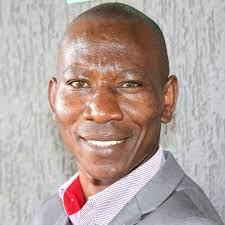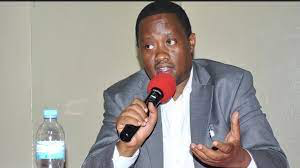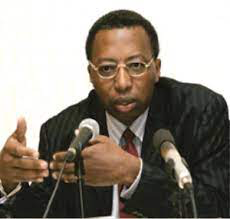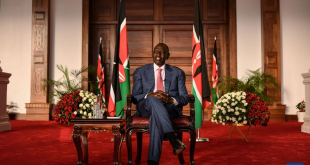Published: December 23,2022

African experts hope that commitments made by the United States at the U.S.-Africa Leaders Summit held last week lead to concrete actions and not empty promises.
Forty-nine out of the 55-member-state African Union and members of civil society and the private sector were invited to attend the summit, where the United States sought to reshape its partnership with Africa in the face of the continent’s deepening ties and diversified engagement with other countries. This was the first U.S.-Africa summit eight years after former U.S. President Barack Obama hosted one. During President Donald Trump’s leadership, no summit at this level was held. The Washington, D.C. summit was the first large gathering of African leaders under U.S. President Joe Biden. It also happened months after the United States released its revamped policy toward Africa in August.
Beyond discussions to catalyze investment in critical sectors, including health, infrastructure, energy, agribusiness and digital, Biden also hosted a small group of African leaders at the White House for a discussion on upcoming presidential elections in their countries in 2023 and U.S. support for free, fair, and credible polls in Africa. Even though African countries need support to fill the deficit caused by various challenges, including the impacts of the COVID-19 pandemic, African experts argue that Africa wants no “big brother influence.” They said the United States has failed to realize that African leaders know their countries’ needs best and do not need lecturing on their internal affairs.
Cavince Adhere, a Kenya-based international relations scholar, told Xinhua that human rights, U.S. national security interests and the promotion of democracy do not appeal to many African countries. Africa, instead, is interested in a mutual partnership where the continent is an equal player on the international scene. “Improving governance on the continent shouldn’t be based on views and feelings of external partners like the United States. Rather, it is a function of the internal desire for African countries to modernize their governance frameworks to deliver development for the people,” Adhere said.
Many of those promises made by the United States echo past pledges by Washington to strengthen its partnerships with the African continent, according to Adhere. “Two factors are likely to hamper the delivery of the promises. First is the reliance on the Western private sector that has often looked at Africa as a risky place to invest,” he said. “Secondly, the insistence of the United States to use its own value judgment and system in designing cooperation agreements with African countries. Africans want to be treated as equal partners and wouldn’t wish to be seen in Western perspectives,” he added.

Eric Ndushabandi, a director at the Rwanda-based Institute of Research and Dialogue for Peace, said the summit was an attempt to restore the confidence of African leaders in the United States. However, as the African continent is in a difficult position especially following the wrath of the COVID-19 pandemic and prolonged drought, African experts have also expressed concerns over geopolitics and U.S. demands as the United States embarks on a charm offensive to lure Africa.

“American aid is always accompanied by conditions that clearly interfere in the internal affairs of the country … when this does not work, America proceeds to threaten officials with sanctions,” according to Jean Emmanuel Pondi, professor of political science and international relations at the University of Yaounde I in Cameroon.
African experts also argued that while the summit seeks to enhance the partnership between the United States and Africa across mutually agreed areas, the United States should also view the continent’s cooperation with other partners with an open mind. “All partners are welcome based on their utilitarian value. Africa wants to engage with the United States on its own terms and not those set by the United States,” Adhere said.
Xinhua
 Africa -China Review Africa -China Cooperation and Transformation
Africa -China Review Africa -China Cooperation and Transformation
